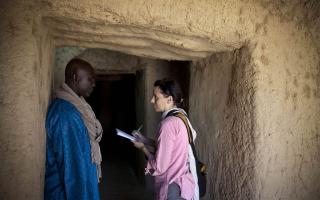Results-Based Management to Support the 2030 Agenda
Kindly note that the course has been postponed to the third quarter of the year. We apologize for any inconvenience this may cause and appreciate your understanding.
This comprehensive programme equips UN staff with the knowledge and skills to apply results-based management (RBM) principles and tools (such as causality analysis, theory of change, results chain, indicator frameworks) to support UN country programming.
The 2030 Agenda for Sustainable Development is a “game changer” that requires more than a mere harmonization of terminology or coordination of parallel efforts. It calls for integrated, interdependent and multidisciplinary outcomes by the UN system for collective impact.
One of the most powerful resources at the disposal of the UN development system is results-based management, commonly defined as “a management strategy by which all actors ensure that processes, products and services contribute to achieving a set of results.”
Results-based management starts long before the logical frameworks traditionally associated with RBM. It begins with a causality analysis that lays sound foundations for the theory of change to address deeply interrelated and interdependent development challenges.
Making the UN response to national priorities more results-oriented, integrated and aligned with the 2030 Agenda is what all countries expect from the United Nations. These expectations can be met by using the full potential of results-based management.
Responding to the needs of the 2030 Agenda for increased accountability to support implementation, and driven by the Secretary-General's "Common Agenda" that calls for accelerating the UN family's transformation over the next five years through a "Quintet of Change" focused on stronger capabilities for data, innovation, strategic foresight, behavioural science, and results, this course offers a mix of knowledge and skills for advancing the applications of RBM principles and tools, and strengthening the quality of UN programming at the country level.
Participants will become fully proficient in the practical application of RBM, as well as well versed in the innovative ways and approaches to support the planning, implementation, monitoring and evaluation of UN sustainable development programmes.
Upon the successful completion of this course, participants will:
- connect the 2030 Agenda for Sustainable Development, the Secretary-General's report "Our Common Agenda" and the UN 2.0 Quintet of Change with UN system effective country-level interventions;
- define the UN system approach to results-based management;
- be able to use specific RBM tools (theory of change, results frameworks) in planning, project/programme proposal drafting, implementation, monitoring, reporting, and evaluation.
The course will adopt a blended format of instructional sessions and practical application. Participants will complete mini-RBM projects starting from identifying a development challenge, elaborating its theory of change, risks and assumptions, creating its results framework, formulating results, targets and indicators to strengthen learning retention and application.
Course enrollment will be limited to maximum 30 participants to ensure the best interaction with course instructors and derive the greatest benefit from small group work.
Day 1: 2030 Agenda, UN Reforms, Overview of RBM in un integrated Programming.
Day 2: Theory of Change (from causality/problem tree to solution pathways), RBM for strategic planning, risks and assumptions.
Day 3: Results chain, indicators, results-based budgeting.
Day 4: Managing for results, monitoring and evaluation, results reporting.
UN strategic planners; chairs/members of
programme management teams /results groups/task teams; UN Coordination officers/advisers; UN staff involved in project/programme management.
The course fee of $2,500 covers the following:
- Three and a half days of training with a balance of presentations and group work on case studies and exercises.
- Exclusive access to a UNSSC online social learning environment with training and supporting background materials, and the opportunity to stay connected with colleagues.
- All course materials, resources and contacts.
Participants are expected to cover all travel and lodging costs related to their attendance at the course.
Certificates from the UNSSC will be awarded to participants upon completion.




